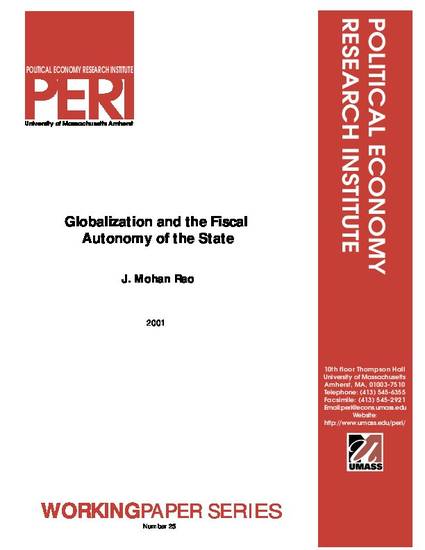
Other
Globalization and the Fiscal Autonomy of the State
PERI Working Papers
Working Paper Number
25
Publication Date
1-1-2001
Disciplines
Comments
Working Paper 25
Abstract
Public finance in less developed countries is the focal point - both as source and destination - of many of the dilemmas and conflicts posed by development. Revenue mobilization for the allocative, distributive and stabilization functions of the state is severely constrained by the narrowness and instability of the tax base. The latter, in turn, is the result of political constraints rooted in socioeconomic inequalities, economic constraints arising from the structures of production and trade, and administrative constraints reflecting a weakly developed state apparatus. As a consequence, public infrastructure and human development expenditures, which are among the most effective vehicles available for reaching the poor and promoting growth at the same time, persistently fall short of socially desired levels. While fiscal constraints do not always reflect the need to finance current and capital outlays for development, public investment is often the first victim of fiscal troubles. Moreover, states must typically resort to modes of taxation and budget financing that violate accepted canons of economic efficiency and `good’ macroeconomic policy. For much the same reasons - political, economic and administrative - social transfers through the budget must also rely on inefficient and leaky buckets. Hence, from both the expenditure and revenue sides, public squalor exacerbates private squalor.
DOI
https://doi.org/10.7275/1274450
Citation Information
J. Mohan Rao. "Globalization and the Fiscal Autonomy of the State" (2001) Available at: http://works.bepress.com/j_mohan_rao/2/
